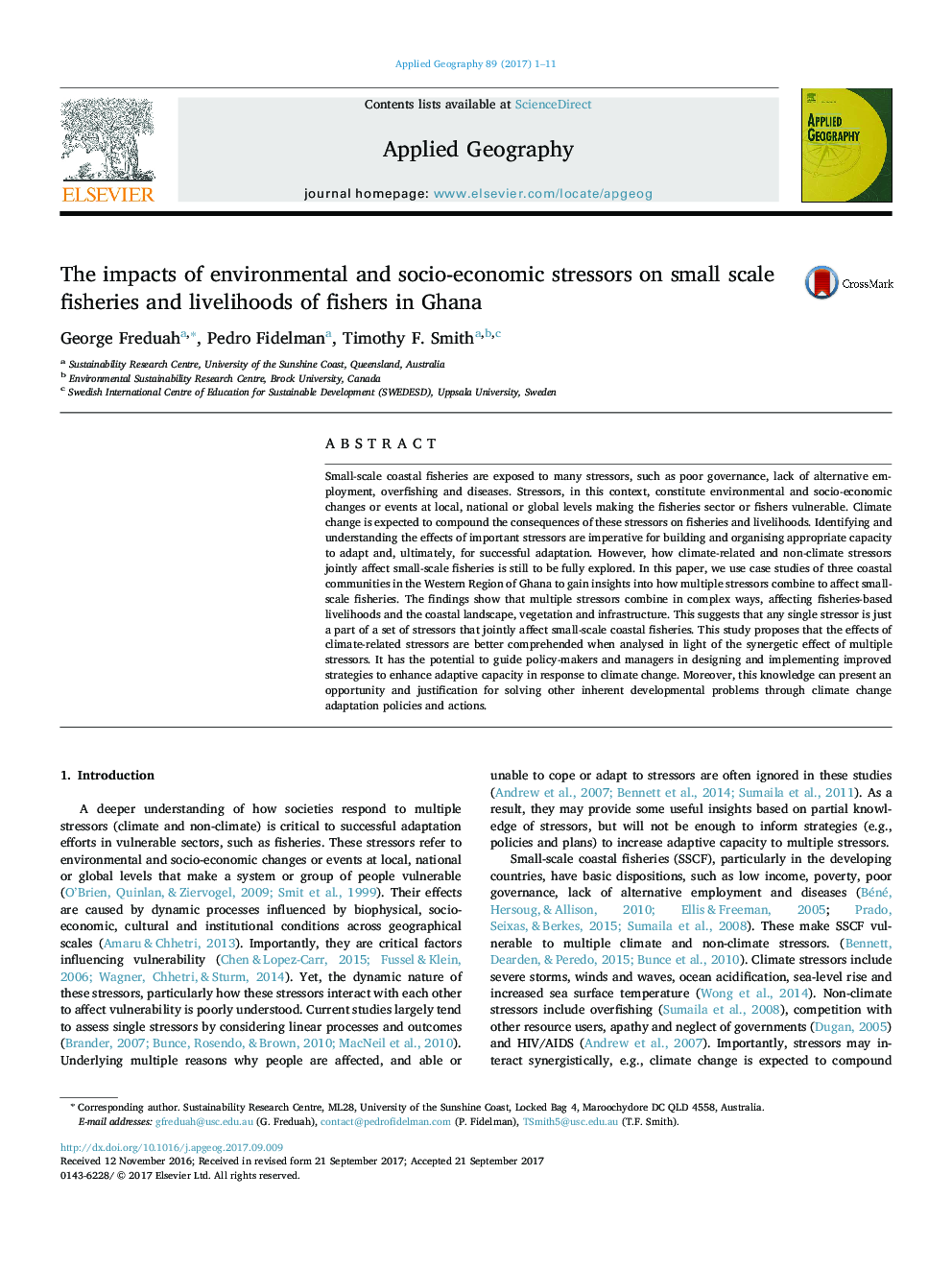| Article ID | Journal | Published Year | Pages | File Type |
|---|---|---|---|---|
| 4758990 | Applied Geography | 2017 | 11 Pages |
Abstract
Small-scale coastal fisheries are exposed to many stressors, such as poor governance, lack of alternative employment, overfishing and diseases. Stressors, in this context, constitute environmental and socio-economic changes or events at local, national or global levels making the fisheries sector or fishers vulnerable. Climate change is expected to compound the consequences of these stressors on fisheries and livelihoods. Identifying and understanding the effects of important stressors are imperative for building and organising appropriate capacity to adapt and, ultimately, for successful adaptation. However, how climate-related and non-climate stressors jointly affect small-scale fisheries is still to be fully explored. In this paper, we use case studies of three coastal communities in the Western Region of Ghana to gain insights into how multiple stressors combine to affect small-scale fisheries. The findings show that multiple stressors combine in complex ways, affecting fisheries-based livelihoods and the coastal landscape, vegetation and infrastructure. This suggests that any single stressor is just a part of a set of stressors that jointly affect small-scale coastal fisheries. This study proposes that the effects of climate-related stressors are better comprehended when analysed in light of the synergetic effect of multiple stressors. It has the potential to guide policy-makers and managers in designing and implementing improved strategies to enhance adaptive capacity in response to climate change. Moreover, this knowledge can present an opportunity and justification for solving other inherent developmental problems through climate change adaptation policies and actions.
Related Topics
Life Sciences
Agricultural and Biological Sciences
Forestry
Authors
George Freduah, Pedro Fidelman, Timothy F. Smith,
